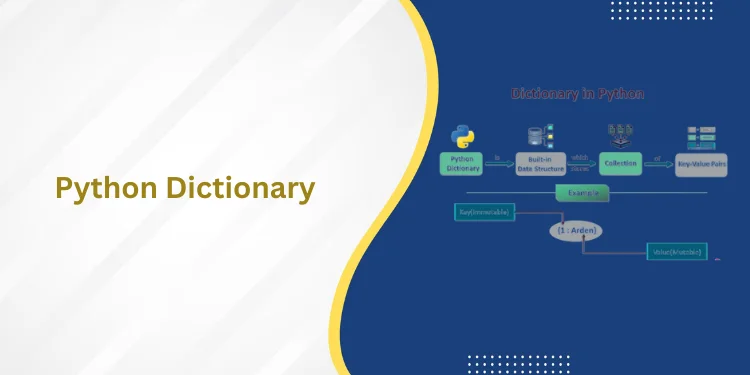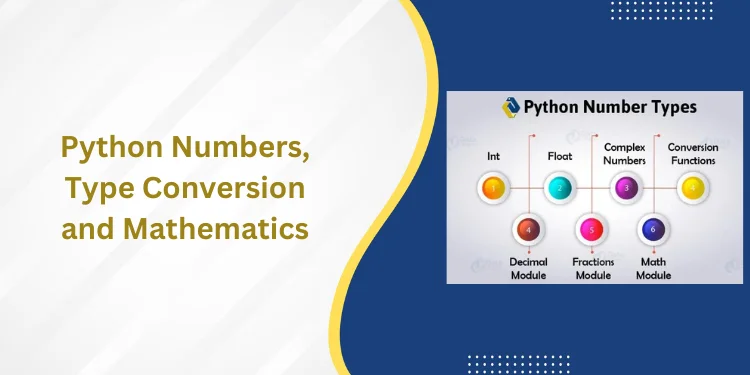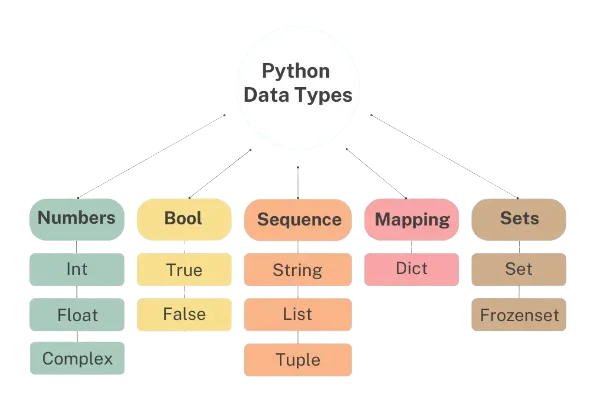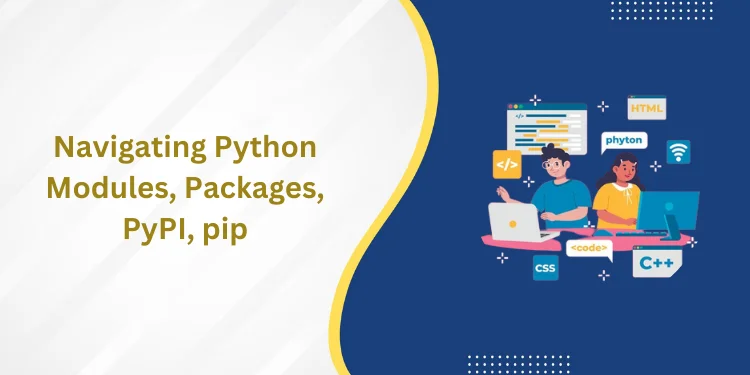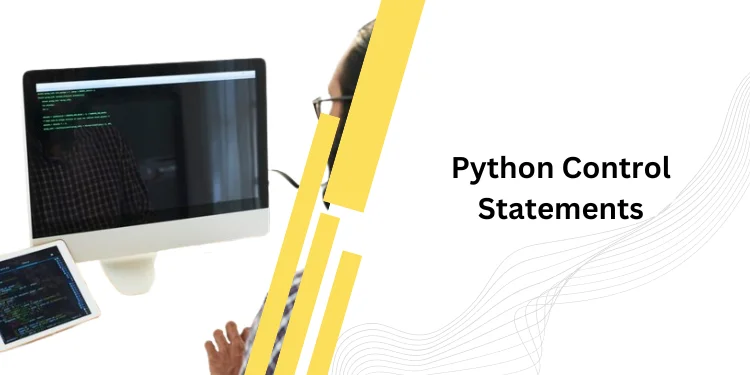Introduction
The Project Manager needs to complete the given task in the most effective way and efficient plan to execute with the required skills. Experience project managers thought they needed two key factors to achieve the goal the First is Recruitment and selection where the manager thought they could hire only those who give their best in the given project by the organization. The second is a good documentation methodology it would be simple and easy to understand the different sizes of projects in critical groundwork for ensuring project victory.
Many organisations require the Project Management technique to grow the business with strategy and goal-oriented way. This technique is sometimes beneficial or non-beneficial depending on the Project Manager’s selection. An experienced manager can assertively do project management with fewer mistakes. Every time the project is not going to touch the sky but we need to learn from our mistakes And do possible corrections in other upcoming projects. So the mistake is learning and learning is the key to success. Keep motivating yourself and your teammates.
What is Project Management?
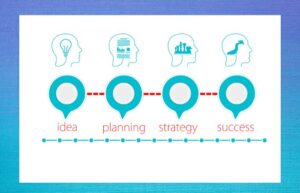
Project Management is about the planning of work, identification of the activity, and time frame for the execution. Project Management is the instruction of using the principles, procedures and policies to the completion of the project by using these from conception through completion.
The combination of the tasks, activities and output must be executed carefully to achieve the desired outcomes. Before an outcome has been achieved, each feature of the project goes through the part of initiation, planning and execution. The process of this goal is called project management.
Project Manager Roles and Responsibilities?
The project Manager has responsibility for the start of a project and commencing the work within the time frame by using a strategy of planning. He plays a role model to the organization to handle it very carefully, and maintain the monitoring or control of the team. The responsibility of the Project Manager includes the:
- Planning the project
- Create to schedule meeting with a timeline
- Organize and motivate the team
- Managing the cost estimate
- Connect with the stakeholders
- Take appropriate decision
- responsible from start to end
When Do We Use Project Management?
When we have to accomplish the project within the specific timeline and make effective money on that project then we plan to make a project management. By flowing this management the organization make money and makes someone a project manager who can thrive in the project and make an effective team. In short, the company want their work on time and constructive money with it, So they use Project Management.
Why Do We Use Project Management?
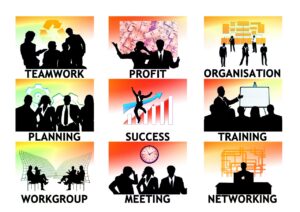
Most companies need project management, and at that time they could choose a project manager from their employees, With proper project management and planning, you are expected to save in the long run. In different words, we explain the purpose of project management for doing a project with planning and managing to complete the goal and deliverables. Project management requires in the organisation to succeed and build more profit through planning, teamwork, meetings and give training by the senior person in the organisation.
Types of Project Management
There are different types of management methodology which is generally used in software and IT companies and HR also. We will discuss all briefly as below:
- Waterfall Project Management
- Agile Project Management
Waterfall Project Management

Water is a linear project process. It has a fixed or well plan to set with all end goals. This methodology follows as its name WATERFALL flow ahead it is played like so, And completes the work step by step. we can also say the traditional method to do this. If a project manager has a specific and clear vision of the work. for example, if he is confident there will be no change throughout the project development Then it could be a good system to move ahead.
Agile Project Management

In this methodology, agile becomes a more flexible process. It is generally used in software development companies. They follow different tasks together in an agile process. They include clients at every step in project development. Our highest priority is to satisfy our clients through the delivery of valuable service in software, For that reason, business owners are expected to give their feedback to the software development team.
Lean Project Management
Lean is a Project Management pattern in the manufacturing industry. This project aims to cut down the time and wastage of product in production (to be exact ex: is Toyota) and to grow more orders. The goal of the lean project is to minimise waste and maximize productivity, including emphasising the value of perspective customers.
Scrum Project Management
Scrum Methodology is more or less the same as Agile Project Management introducing the small team which is led by the expert to remove all obstacles during this project and sturdy focus to do ahead without wasting the time. When the project is completed in less time is called a sprint, And the small team meets daily to discuss their current tasks and clear roadblocks where is necessary. Scrum Methodology is especially working on time and development rapidly within a small work team.
Kanban Project Management

In short, Kanban Project Management is an Agile structure used to anticipate and improve workflow. Kanban is a Japanese word that shows a visual signboard. It comes in three columns (To Do, In Progress and Done). This is also called Kanban Board, Which identifies the status of their employee’s work tasks, And gets the real-time report status. This will maximize the efficiency of the workflow during the task. Kanban is a simple core method that gives a flexible and efficient approach to workflow management.
The Core Component of the Project Management Lifecycle
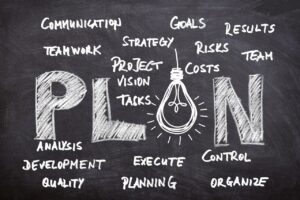
The project management used the workflow of Agile and kanban methods to follow most of the businesses. But the basic elements we are using during this methodology with un
ique terms or phrases are briefly as there:
- Initiating
- Planning
- Executing
- Monitoring and controlling
- closing
Initiating
- Determine the objectives and requirements of the organisation
- Evaluate previously performance
- Make cost calculations and create a budget
- Define the task and product
- Create Timeline
- Create necessary document
Planning
- Create a dynamic team
- Decide how to plan
- Determine the product that will be making the business
- Create a time and cost estimate for the work to be done
- Identify problems that could be occurring
- Obtain necessary official approval by CCB(central control of the board)
Executing
- Efforts to be made to achieve the desired goal
- Coordinate employees and resources
- Producing deliverables
- Communicate with stakeholders
Monitoring And Controlling
- See much work carried out
- Follow the time progress and budget
- Correct all the problems that may occur
- Review the financial detail plan
- Control on work if chance to delay
Closing
- Complete the project on time
- Submit to the administrative
- Close the contract by Ensuring and project agreement
- Preparing the closing process
What are the Benefits of Project Management?
Project Management professionally completes the project with a goal, plan, strategy, vision, implementation and success. Project Management is necessary for every organisation. It is followed by huge companies or big startup companies.
It could be beneficial to finish the work on the timeline with a budget decided by the Manager.
In this project, we can keep safe our goal and document it in one place. Increase the teamwork
Efficiency and remove all obstacles. There are some other benefits of Project Management in bullets as below:
- Improve team effectiveness
- Align communication with each other
- Eliminate confusion and doubts to increase efficiency
- Keep work and documents organised in one place
- Encourage teammates to better work
- Set the schedule, budget and scope from the start
- Increase customer satisfaction
- Mitigate risks in projects
- Focus on your resources and productivity
- Satisfy your stakeholder in various needs
Project Management Steps for the Execution Phase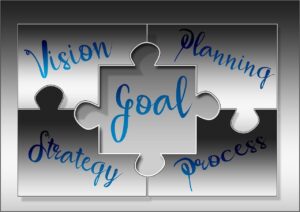
The Project Execution phase might be often much longest and most complex stage in the project lifecycle. So here are some steps to get success in execution in Project Management:-
- Project alignment to execute
- Team Flexibility and transition
- Distribution information to your clients and stakeholder
- Scope creep in the project
Conclusion
We understand Project Management with the above description and the conclusion is the project manager role can perform by anyone in an organisation but first, he/she has the dedication to be a project manager. With this methodology, we can grow our business within budget and within the timeline. Every big organisation need the Project Manager to lead the project with their tactics and always encourage other team members likewise.
A Project Manager Plays a different kind of role during the project he almost handles everything in that project with dedication, And coordinates coworker, listen to their problem facing to transition the project. The Project Manager has a responsibility to all teammates’ work align and discuss their problems with each other. For ex- A House Maker is also a project Manger of her house too Because she also handled all household tasks from start to end. It is a very exclusive Example I ever heard. She manages as much as she can with morale.
Frequently Asked Questions
What is a project management do?
The Project Manager does their job by planning, Managing the project-related work. First, he initiated the project and find the scope of team members. The project Manager is responsible for completing the project on time and within budget. And execute the work with the teammates effectively to follow the possible goal which we have to complete under the supervision of the project manager. He has a leading quality so that he monitors the coworker doing their work efficiently or not. And control the time had to decide earlier.
Thereafter if anyone faced any doubt or problems so they can conduct a meeting and discuss whatever challenges have faced by they, and the project manager guide and reduce the risk mitigation. In the end when the project has been completed. They have to close it by testing all processes.
What are the 5 principles of project management?
Every Project Management needs a Project Manager to handle the project responsibilities. There are the 5 essential principles of Project Management as below:-
- Focus On Product
- Define Roles and Responsibilities
- Continued Business Justification
- Learn from Experience
- Manage by Stages
Focus on Product
First, We need to clear out what product is beneficial and give huge profit to our organisation, Decide on the product and focus the resources to create it. Discuss with your stakeholder, sponsor and department Manager which can take the level of the decision on it.
Define Roles and Responsibilities
In an organisation, we always connect with the right designation level of members to communicate and set goals for making decisions effective. The project Manager gives responsibility to the respective member of an organisation.
Continued Business Justification
Every project behind has a business justification. The business should know the ROI of the product which they want to make or produce with effort, Time and investment.
Learn from Experience
This is the most important principle of Project Management. The manager and the other role play in a project they should not repeat a mistake every time. They must analyze what went wrong in the previous project worked on. And learn from their mistake and never repeat them in the coming projects.
Manage by Stages
The idea behind this principle is to create the sub-stages of the project for better performance and proceed further step by step without any mistakes.
What are the 4 types of project management?
Every project has a different meaning so the organisation decide which type of project they want to implement in their business to pursue. Here are some examples:-
Waterfall Project/Traditional Project
We all know the flow of the waterfall is moving ahead And in the same way in a project, we take steps ahead one by one at a time. This is also called a traditional project. This is the most high-cos configuration project.
Agile Project
This type of project is mainly used in software development companies. There is no restriction to following the step-by-step process in it. We can choose according to project requirements.
Remote Project
Remote project Management is generally used by the appropriate team that rarely meets in person. This freelancing work is an example of a Remote Project.
Kanban Project
This method is usually designed, to manage and improve the system of workflow in the organisation. This methodology allows access to or visualises the work, limit and progress chart in kanban project management.
What are the 4 C’s in project management?
There are 4C’s in Project Management that really important to the organisation as they are:-
Communication.
Communication is the key role feature of any project management. The project Manager distributes the task to each team member with these features. It’s very powerful to appreciate the timely submission of work and concise and relevant communication.
Clarity
The project Management and team members have better clarity terms for success. If someone has no clarity of workflow the other one doubts work. Clarity of work is most important to support each other in project management.
Commitment
In any project, the leader and the teammates discussed their issues with commitment demonstrating an equal level of commitment.
Creative Thinking
This term is usually important to the entire project team members. They must be creative with their upcoming tasks and ongoing ones too.
What is 4P in project management?
This is a very important concept for properly building a product. There are 4 critical components while creating a product for the company which are known as 4P’s namely:-
- Product
- People
- Process
- Project
Product
As the name itself ascertain. The product created by the project manager and his team defines the product scope to establish a successful result. Facing technical hurdles and coming across with a positive outcome indicates well-performed teamwork.
People
To build a proper product this component is nearly very important to the completion of the product by human resources. We cannot deny this statement. Human resources are the deliverables.
Process
With better planning, we clearly define the process as the key to success in any business. It synchronized how the teamwork in the respective period. The process has various phases like:
Documentation phase, implementation phase, classification phase and interaction phase.
Project
The project is the last and final P in the project planning. The project manager is responsible to guide the team members to achieve the goal and objective by helping and assisting them in any issue that occurs. He is always checking the cost, and budget and makes assure the project stays on its track with the given timeline.





